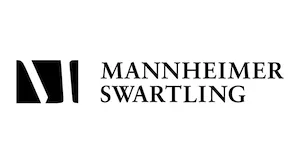We are witnessing a legal avalanche relating to business and human rights. Our Business and Human Rights Updates will keep you advised of initiatives of relevance to your business. We are also constantly chasing new tools to enable businesses to identify and effectively address potential harm to people and the environment. Ultimately, what protects people (and the planet) is also what best protects businesses.
A 2022 Business and Human Rights Outlook | The Uyghur Forced Labour Prevention Act | The role of banks towards a Just Transition | Tools for addressing gender inequality in the net-zero transition
- Top Ten Business and Human Rights Issues for 2022
The Institute for Human Rights and Business (IHRB) does annual listings of the Top Ten Business and Human Rights Issues. The 2022 picks are all issues at the intersection of human rights and the climate crisis. The overview reflects the fact that across governments and business an integration is under way of environmental and human rights policies and action. The ten issues are state leadership, accountable finance, dissenting voices, critical commodities, purchasing power, green building, agricultural transitions, transport transformations, circular economy and responsible exits.
- New US developments in human rights-related trade
law
- On 23 December, President Biden signed into law the Uyghur Forced Labour
Prevention Act. This Update has previously
discussed cases of import bans under the US Tariff Act of 1930
section 307, including of products produced in the Chinese Xinjiang
region. The new Act imposes a broad assumption that all goods made
in part or in whole in Xinjiang are in fact made with forced labour
and therefore are banned from import to the US; a presumption that
can only be disproven by “clear and
convincing” evidence that the goods were in fact not
made with forced labour – putting effective human rights due
diligence at the center of companies' compliance measures.
The Act also imposes sanctions on companies that knowingly
facilitate forced labour in Xinjiang and/or knowingly aid the
circumvention of the import ban on goods from Xinjiang.
There is now growing pressure on the EU Commission to deliver on its commitment to a forced labour import ban, including from EU Parliament members. Reportedly, the EU Commission may instead be considering addressing the issue of forced labour in global supply chains through comprehensive due diligence legislation, which may include possibilities of forcing companies to withdraw products from the market. - On 10 December, the US Department of the Treasury's Office of Foreign Assets Control (OFAC) designated new individuals and entities under the Magnitsky Act for their connection to human rights abuse; including in relation to intrusive surveillance technology used against Uyghurs in the Xinjiang region and use of forced labourers sanctioned by and for the economic benefit of North Korea.
- On 23 December, President Biden signed into law the Uyghur Forced Labour
Prevention Act. This Update has previously
discussed cases of import bans under the US Tariff Act of 1930
section 307, including of products produced in the Chinese Xinjiang
region. The new Act imposes a broad assumption that all goods made
in part or in whole in Xinjiang are in fact made with forced labour
and therefore are banned from import to the US; a presumption that
can only be disproven by “clear and
convincing” evidence that the goods were in fact not
made with forced labour – putting effective human rights due
diligence at the center of companies' compliance measures.
The Act also imposes sanctions on companies that knowingly
facilitate forced labour in Xinjiang and/or knowingly aid the
circumvention of the import ban on goods from Xinjiang.
- Climate finance too has human rights dimensions:
growing expectations on banks
The Glasgow Climate Pact reinforced the commitment under the Paris Agreement to ensure the transition to net-zero is people centred so that “no one is left behind”, as stated in the SDGs. (See also the ILO Guidelines for a just transition towards environmentally sustainable economies and societies for all.) It is no exaggeration to say that finance will be a make or break for the (just) transformation to a net-zero economy. Banks are facing increasing expectations to contribute to a just transition – expectations coming from regulators and other stakeholders by way of regulation (e.g. taxonomies, bank regulation and supervision, mandatory human rights due diligence); litigation and reputational exposure; reporting standards (e.g., GRI, upcoming standards by the newly created International Sustainability Standards Board); self-regulation and business standards (e.g. UNGPs and the OECD Guidelines for Multinational Companies) and sector initiatives (e.g., the Global Financial Alliance for Net Zero and the Net Zero Banking Alliance).
To help banks meet this challenge, Clifford Chance, CDC and IHRB have recently published the instructive “Just Transactions – A White Paper on Just Transition and the Banking Sector.” It provides a readable yet comprehensive overview of the legislative and other drivers for banks to consider a people-centred approach to their participation in the net-zero transition, suggests operative measures banks can take to consider a just transition in their lending and other businesses, as well as business opportunities for banks who join the effort towards a just transition. - The gender dimension: A “Women and the net-zero
economy” business toolkit
Women are more vulnerable to the effects of climate change, but also to the transition to net-zero supply chains, whose female workers are especially impacted. To help companies and their sustainability and procurement professionals consider the impacts on women when taking climate action, the Business Fights Poverty and PwC, together with the Harvard Kennedy School Corporate Responsibility Initiative for the UK Foreign, Commonwealth and Development Office, have recently published a hands-on toolkit and case studies. It includes practical steps for companies to apply in their efforts to reduce scope 3 emissions in global supply chains, not least where women are being disproportionally “left behind” (e.g., energy, extractives, and tech).
The content of this article is intended to provide a general guide to the subject matter. Specialist advice should be sought about your specific circumstances.




